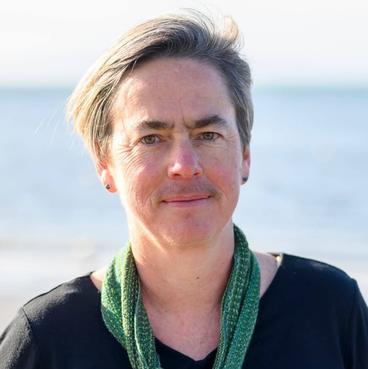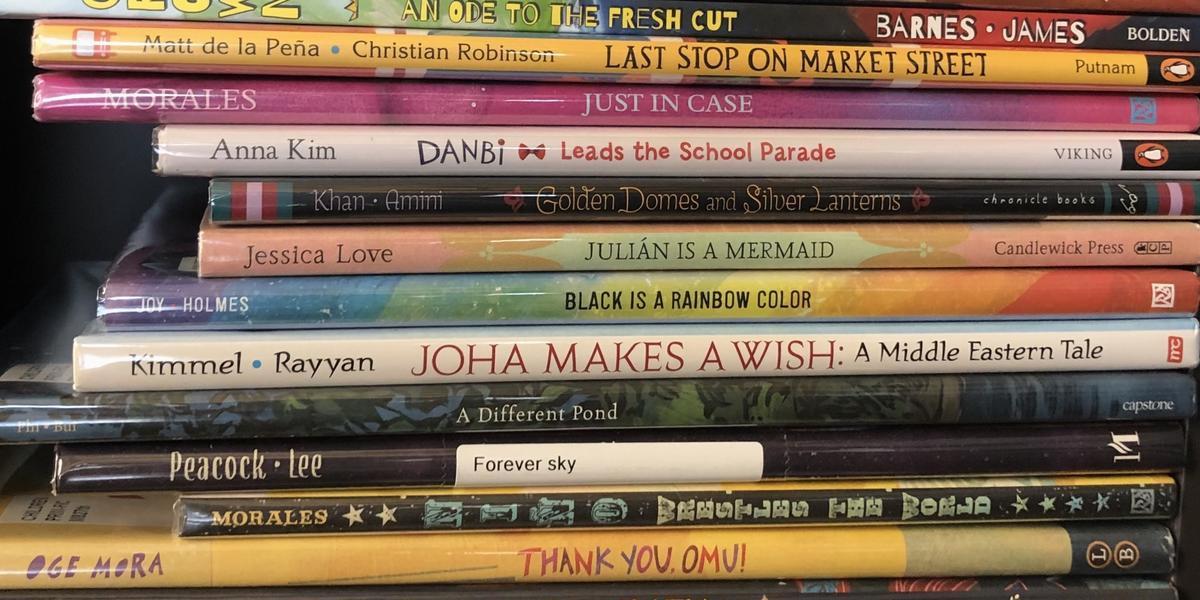Suki Mozenter came to UMD to teach a children’s literature course—what she, and many others, will walk away with will be much more meaningful and enduring.
Mozenter arrived in fall 2020 as a new assistant professor in education, eager to learn more about UMD and immerse herself in her work. In a meeting with Kayleen Jones, the Department of Education librarian, a discussion about including students in the work of improving representation in the UMD’s children literature section came up. The goal originally was to develop new, inclusive collections of literature representing diverse people and cultures—areas where all students could find themselves healthily represented in modern-day culture. Now, it has turned into something much more.

Suki Mozenter, Assistant Professor in Education
A conversation between Mozenter, Jones, Associate Professor Insoon Han, and Associate Professor Ariri Onchwari sparked action. The four began to discuss what they as faculty members could do to provide teacher candidates with access to books that provided healthy representation. Between Mozenter, Han, Jones and Onchwari—or as they refer to themselves, “the co-conspirators”— the Antiracist Literary Advisory Board (A-LAB) was created.
Made up of 20 students from different cultures and backgrounds, A-LAB builds off the idea that antiracism is a specific action people can take and develops it into a concept that future teachers need to understand before entering their own classrooms. “The whole project is built around the idea of not just talking about race but actually doing something,” Mozenter says. “[The students are] actually driving what it is that we as a community, as a collaborative, should be working on and what we should be grappling with.”
The students are the instructors of A-LAB. Mozenter, Han, Jones, and Onchwari create opportunities for them to meet with active leaders in antiracism; afterwards, the students lead the conversation on how it affects them and other students. The co-conspirators rely on the students to lead the way, Mozenter says. “It’s really much more about the students already having what they need and faculty just giving them the space to actively engage in dismantling systemic racism at UMD.”
As a collective group, they are discovering ways to create antiracist and inclusive learning environments through literature in the classroom. Each student is in the education department, working towards building classrooms of their own someday; however, each student has vastly different experiences and perspectives they can bring to A-LAB. The project provides these students with the tools needed to become antiracist practitioners, as well as an open space for them to discover and explore their own identities.
The students are building a community in a space where they are able to share their experiences and perspectives, and learn from the others around them. Open discussion is encouraged and welcomed as the students build their own identities to be even stronger. As Han says, “It’s such a gift to be able to be alongside the students, and us faculty as well, as we reflect on our own racial identities as we do this work … it’s not often something we attend to, especially as a community.”
The hope is that each year a cohort of students will leave as a strong community able to support each other throughout their teaching careers while having developed A-LAB even further for the next group. Each graduated teacher from A-LAB will be an antiracist practitioner in their own right and have the skills needed to create inclusive environments for all students. Mozenter states it quite clearly: “If we’re not interrupting this (racism) in schools, we don’t stand a chance of interrupting it anywhere else.”
At the end of this year, students in A-LAB will have identified a message regarding antiracism and inclusivity they want the community to know, as well as ways to engage within the community to spread that message. These students are the ones taking the lead to address systemic racism, beginning with the library, and continuing into their own future classrooms.
About the Department of Education
This story was written by UMD student Erika Doetkott, who is majoring in Communication Sciences and Disorders. Erika assists Lissa Maki with communications for the College of Education and Human Service Professions.
